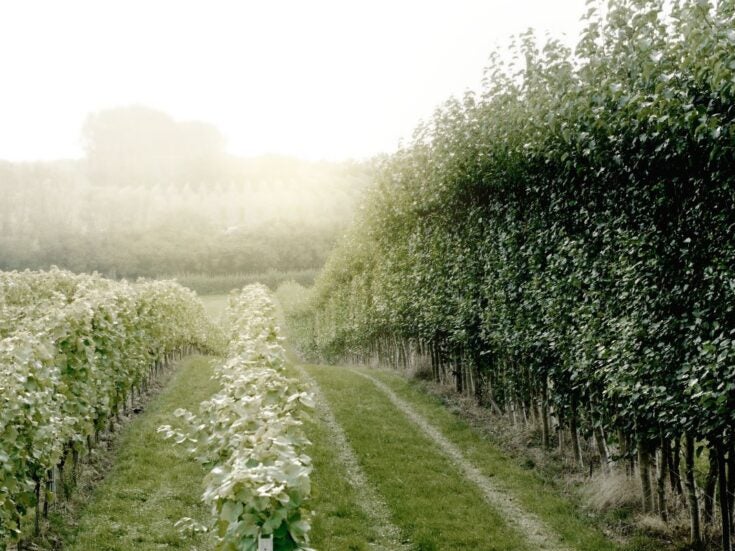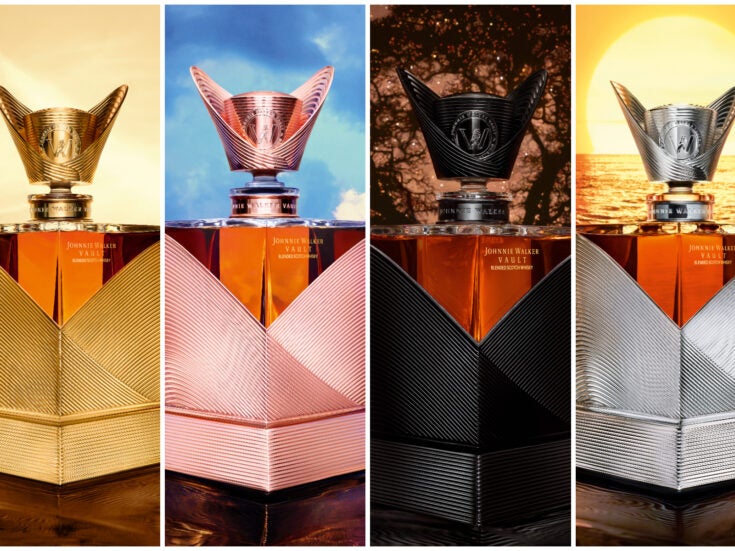
Liquid Gold
Looks good, smells good, tastes good — and, if you choose wisely and don’t drink it yourself, can be a remarkably good investment. Here’s to fine Scotch whisky, says Christopher Silvester
AS THE WHISKY valuer for auctioneers McTear’s, Stephen McGinty spends much of each day sitting in a gallery surrounded by rare single malt whiskies. There are 80 different lots of Bowmore, several Highland Parks, some Springbanks from the Sixties, even a 1947 Glenrothes. ‘The sheer scale of investment potential, given the number of expressions which have accumulated from the distilleries over the years, is a complete eye-opener to people who don’t necessarily think of whisky as having an investment potential,’ he says.
The market for whisky as an alternative asset is younger and less developed than that which exists for fine wines. There are hardly any investment advisory businesses out there, but that hardly matters when valuers for auction houses such as McTear’s, Bonhams and Christie’s are happy to dispense free advice about buying or selling.
Apart from special formats, fine wines are usually sold by the case, which makes them more bulky, and they require storage in special atmospheric conditions, which means they are often stored in a wine merchants’ cellar or in a bonded warehouse. With whisky, says Martin Green, a whisky valuer for Bonhams in Edinburgh, ‘you can buy a bottle rather than a case. At the high end of the market people tend to buy single bottles and they take delivery of them.’
As long as bottles are stored in a place that avoids extremes of damp and heat and is away from direct sunlight, and they’re kept upright to prevent the cork from rotting, there’s nothing to worry about. Unlike fine wines, whisky does not continue to mature in the bottle, nor does it ultimately deteriorate. The vintage and how it develops is never an issue. Instead, whisky remains frozen in time, a perfect expression of the distiller’s art. What matters is the quality of the ageing in cask by a distiller with an established reputation. ‘Macallans have always matured in sherry casks,’ points out Green. ‘It enhances it, gives it sweetness, makes it very interesting.’
Nonetheless, as with fine wine, there is a finite number of bottles available, and as these are drunk or kept hidden in private collections, so the value of the whisky in question increases. ‘You can be assured if you buy single casks or numbered releases that you have one of a finite amount,’ explains McGinty. ‘I have here bottle No 17, one of only 100 Talisker 28-year-olds which were produced from cask 6,433 in 1973 — instant checkable provenance. And you have the knowledge that there were only, and can only ever be, 100 bottles of this whisky. Since collecting of whisky has become a worldwide phenomenon and sales are expanding all over the globe on the back of whisky for drinking, you know that more and more people are going to be clamouring for fewer and fewer bottles over the years.’

Another wrinkle is the unfortunate closure of many distinguished distilleries, which can have an effect on the value of their surviving output as the death of an artist can have on the value of their works. ‘You can also look at investing in things from defunct distilleries, knowing that the spirit itself will never be produced again,’ says McGinty, ‘so therefore you’re buying a piece of Scottish history as well as a piece of distilling history.’
There may not be an official classification as there is in Bordeaux, but several brand names are gaining worldwide reputations, such as Ardbeg, Bowmore, Springbank, Macallan, Glenfarclas, and Dalmore. Ardbeg, from the island of Islay (‘the Queen of the Hebrides’), was mothballed in 1981 but was reopened by Glenmorangie when it bought the distillery in 1997 and the brand was relaunched.
‘You can go for the big distilleries in terms of investment — Macallan, Highland Park, Ardbeg — by going for the smaller editions,’ says McGinty. ‘You can go for historic bottlings. You can go for a collection such as the Rare Malts Selection; the rare malts are rapidly gaining in price. These are from defunct distilleries, or distilleries that were mothballed, or from very limited distillations — older bottles. Most of the runs are numbered and there seems to be a great ambition to collect complete sets of them.’
Green, who is also the author of Collecting Malt Whisky, has been auctioning fine and rare whisky since the late Eighties (he was at McTear’s before joining Bonhams). Back then, the Scotch Malt Whisky Society had just been formed, and it has since done tremendous work in promoting malts overseas as well as at home. In the old days, auctioneers bundled whisky into wine sales or general sales, but from 1989 onwards Green held annual dedicated whisky auctions, which became biannual in 1995 and are now quarterly.
‘We’re selling in Edinburgh, we’re selling now in New York and twice a year in Hong Kong. The Asian market is growing and it’s an area we’re very keen to promote — I’ve just been doing a valuation today for the Hong Kong office. There are very good whiskies going into the November sale. It’s growing gradually and we’re seeing both demand from Asia and activity by sellers that will encourage the market.’
McGinty used to work for an organisation which had a chance to sell a single-cask bottling of Bowmore 1964. There were only 99 bottles produced; Bowmore kept four for the distillery archive and released 95. ‘Ten years on that has gone from a retail price of £995 to one bottle selling for £3,966. You know that some of these went to the Far East market.’

Another country with huge potential, he believes, is India. ‘Whisky is reaching the new Indian middle classes as a drinking product and rapidly becoming a luxury drinking product with a bit of cachet, and when that’s happening you know the next stage is going to be even better than that. As you collect fine and rare whisky, there is an increasing number of people in these countries who have got the money to spend on drinking it, which means that the long-term investment potential is good.’
Illustration by Russ Tudor
Apart from the regular auctions, you can invest through reputable online businesses. There is the Whisky Exchange, which has two specialist shops in London as well as a website, and whose director, Sukhinder Singh, has said that his UHNW clients are particularly interested in whiskies from defunct distilleries. There is also the World Whisky Index, which was founded in the Netherlands in 2003. The company will store investment whiskies for you, and you can monitor the fluctuating prices of your portfolio of different investment-grade whiskies on a ‘whisky ticker’.
Investment grade whiskies may not have the tax-efficient appeal of fine wines (which are classified as a wasting asset and therefore incur no capital gains liability). However, the returns can outperform even those of Bordeaux first growths. The most important requirment for any whisky investor is patience. Ten to twenty years is the appropriate time frame — making it perfect as an investment for one’s offspring.
‘Having been doing whisky sales for 25 years,’ says Green, ‘what I’ve seen is that many items have quadrupled in value and more. The best advice for anyone thinking of this as an alternative market to get into is that they have to be prepared to sit and wait for at least ten years, because what I’m seeing is people who collected ten or fifteen years ago coming back now to sell it and there is a huge difference between what they paid then and what it’s worth now. Prices are not the same for every bottling — it depends on rarity — but there’s huge room for growth.’
Christopher Silvester is a contributing editor at Spear’s







